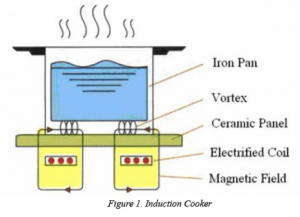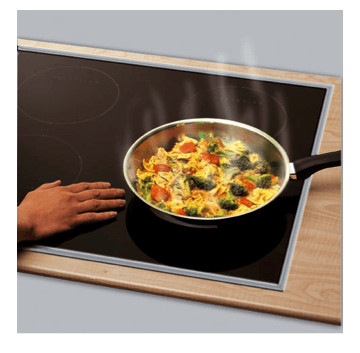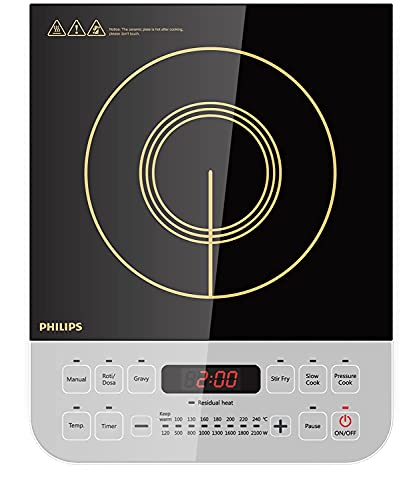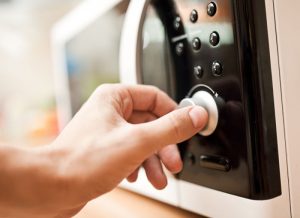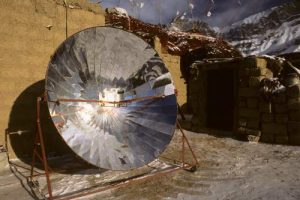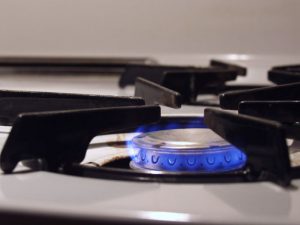Best Induction Cooker/Cooktop/Stove in India in 2024 Buyer's Guide
- How induction cooker works
- Induction cookers in Indian kitchen and cookware
- Cost of cooking on induction cookers
- Are induction cookers expensive?
- Are induction cookers faster than LPG stoves?
- Efficiency of induction cookers
- Safety of induction cookers
- Pros and Cons
- So, what did we cook?
- Best Induction Cookers in India in 2024
- References:
When it comes to taking a step forward in technology that changes the traditional methods of doing a specific task, people think a lot. Here the specific task is cooking, the traditional method is using a gas stove, and the step is to start using an induction cooker. There are a lot of questions when it comes to using an induction cooker, which makes it difficult for people to take a step ahead. We at Bijli Bachao are here to answer them and help people get rid of the confusion. This article aims at providing all the relevant information on Best Induction cookers/cooktop/stove in India in 2024.
- How induction cooker works
- Induction cookers in Indian kitchen and cookware
- Cost of cooking on induction cookers
- Are induction cookers expensive?
- Are induction cookers faster than LPG stoves?
- Efficiency of induction cookers
- Safety of induction cookers
- Pros and Cons
- So, what did we cook?
- Best Induction Cookers in India in 2024
- References:
How induction cooker works
Induction cookers work on the principle of electromagnetism. There is a coil of copper wire placed below the cooking surface (generally made of glass-ceramic), above which the cooking vessel is placed. An alternating current flows through the coil, which creates a magnetic field. The vessel kept above the cooking surface gets induced with a current due to the magnetic field. This current flowing in the vessel, through the cooking surface, generates resistive heating which inturn heats the food in the vessel. Instead of heating the area around the vessel, like in the case of a gas stove or an electric stove, an induction cooker heats the vessel only. This leads to less wastage of heat, in turn keeping the kitchen cool.
Induction cookers in Indian kitchen and cookware
Most of the Indian dishes that are cooked on a regular basis in every house, can be prepared using an induction cooker. Some brands of induction cookers also provide specially programmed cookers with preset functions for Indian cooking. But some Indian food like phulkas (chapattis) can get difficult to be cooked on it.
Induction cookers require compatible cookware to work with it. Utensils made up of ferromagnetic (having magnetic properties) material like iron and steel can only be used. If you want to test whether your existing cookware is compatible or not, simply take a magnet near the base of the cookware, if it clings, your cookware is compatible.
Cost of cooking on induction cookers
The cost benefit of using induction cooker depends on the price of electricity and gas (PNG or LPG) in your city. If cost of electricity is much higher (more than Rs 5 a unit), then it might not be economical to use Induction Cookers. If cost of electricity is low and PNG/LPG are unsubsidized or expensive, then Induction cooker will turn out cheaper to use. In a previous article (Comparison of Cooktops) we did a comparison of Gas and Electric cooktops and we analyzed that at Rs 5 a unit and PNG at regular rates, the costs of using Induction cooker as compared to PNG/LPG comes out to be close (with Induction cooker being slightly expensive). Here is the calculation that we have put in that article:
|
LPG Stove |
PNG Stove |
Induction Cooktop |
Electric Coil Cooktop |
|
|
Unit Definition |
1 Cylinder (14.2 kgs LPG) |
1 SCM |
1 kWH |
1 kWH |
|
Energy (in Joules) per unit |
654620000 |
41868000 |
3600000 |
3600000 |
|
Energy (in Joules) per unit factoring efficiency |
261848000 |
16747200 |
3024000 |
2664000 |
|
Units Required to heat 10 lts of water. |
0.012 |
0.188 |
1.042 |
1.182 |
|
Cost per Unit (in Rs) |
Rs 423 (Subsidized), Rs 900 (Un-Subsidized) |
Rs 23 |
Rs 5 |
Rs 5 |
|
Cost of heating 10 lts water (in Rs) |
Rs 5.09 (Subsidized), Rs 10.8 (Un-Subsidized) |
Rs 4.33 |
Rs 5.21 |
Rs 5.91 |
Are induction cookers expensive?
Yes, they are more expensive than the conventional cookers. But due to their high efficiency operational savings can ensure payback of the extra cost. The cost may vary depending on the brand, type and wattage of the cooker. Approximate price range of induction cookers available in Indian market based for different wattage of cookers is as follows:
| Wattage | PriceRange* |
| 1400W, 1500W | Rs. 2400 — Rs. 3700 |
| 1800W | Rs. 2900 – Rs. 3700 |
| 1900W | Rs. 1700 – Rs. 4300 |
| 2000W | Rs. 2600 – Rs. 4500 |
| 2100W | Rs. 4600 – Rs. 6000 |
*The prices are indicative and may vary depending on the type of cooker and brand.
Are induction cookers faster than LPG stoves?
Cooking definitely gets faster with the use of an induction cooker as compared to the LPG stoves. This is so because in induction cookers the vessel itself becomes the heat source, heat loss decreases and cooking is faster. Consumer Voice, an organization that raises consumer awareness published a report based on the tests that were conducted on various brands of induction cookers. They found that depending on the brand, an induction cooker consumes a minimum of 2.58 minutes to a maximum of 4.04 minutes to boil 1 litre of water. On the other hand, an LPG gas stove takes about 5.36 minutes to boil the same quantity of water. Also, heating time is inversely proportional to the wattage of the cooker.
Efficiency of induction cookers
Efficiency of induction cookers compared to gas and electric stoves as per the boiling water tests conducted by the US department of energy is as follows (Source:US: DOE):
| Gas | Electric | Induction | |
| Efficiency | 40% | 74% | 84% |
The efficiency is measured in terms of the ratio of energy that gets delivered to the food to the energy consumed by the cookers is dependent on the size of the pan and the heating flame/surface. So yes, induction cookers have the highest efficiency.
Safety of induction cookers
- Absence of open flames make them very safe to use.
- Since the heat is eventually produced by the vessel itself, the surface of the cooker below the vessel is much cooler than the vessel, making it less risky to use.

- There is a control system that stops the heating process if a vessel isn’t kept on the cooker or the vessel isn’t large enough.
- The magnetic field produced gets projected about 2-3cms, which does not pose any harm to users (People with cardiac implants should consult their doctors before using it though). Some induction cookers also have an anti-magnetic wall that ensures safety for users from the magnetic radiations.
- Temperature control feature regulates the energy supply very easily and efficiently, making it very safe to use.
- Overheating of food can be restrained by setting up the timer.
Induction cookers are very safe to use compared to other conventional cookers, but certain precautions need to be taken to make it completely safe to use like, not to touch the vessel without some hand protection, not to forget to turn it off, avoid taking a magnet too near to it.
Pros and Cons
- Pros
o Very safe due to the controlled mechanism and the safety features.
o Easy to clean and manage.
o Consumes less energy, which makes it environment friendly.
o Heat wastage is minimized, which increases efficiency and results in cooler kitchens.
o Faster than conventional gas stoves.
o Temperature controller and timer make it easy to use.
- Cons
o Expensive than regular cooktops.
o Requires special cookware.
o No electricity, no cooking.
o Food that require open flame to be cooked (e.g. Chapatti) cannot be cooked.
o Works only with flat bottomed vessels/pans and very small or very large vessels can raise issues .
So, what did we cook?
Induction cookers havea few limitations, but when it comes to energy saving, cost effectiveness, faster cooking, easy to use, and safer means of cooking, induction cookers can be considered. Induction cookers have not yet started replacing the LPG gas stoves but have started complementing them in Indian kitchens. Here are some popular models of Induction Cookers:
Best Induction Cookers in India in 2024
Some of the best Induction Cooktops available on Amazon in India in 2024:
 Philips Viva Collection HD4928/01 2100-Watt Induction Cooktop with Feather Touch Sensor and Crystal Glass Plate (Black)
Philips Viva Collection HD4928/01 2100-Watt Induction Cooktop with Feather Touch Sensor and Crystal Glass Plate (Black)
 Prestige PIC 20 1600 Watt Induction Cooktop with Push button (Black)
Prestige PIC 20 1600 Watt Induction Cooktop with Push button (Black)
 Prestige PIC 16.0+ 1900W Induction Cooktop with Soft Touch Push Buttons (Black)
Prestige PIC 16.0+ 1900W Induction Cooktop with Soft Touch Push Buttons (Black)
 Usha CookJoy (CJ1600WPC) 1600 Watt Induction cooktop (Black)
Usha CookJoy (CJ1600WPC) 1600 Watt Induction cooktop (Black)
 Prestige Induction Cooktop Pic 6.1 V3 2200 Watts - Black
Prestige Induction Cooktop Pic 6.1 V3 2200 Watts - Black
 PHILIPS Viva Collection HD4938/01 2100-Watt Glass Induction Cooktop with Sensor Touch (Black)
PHILIPS Viva Collection HD4938/01 2100-Watt Glass Induction Cooktop with Sensor Touch (Black)
 Prestige PIC 15.0+ 1900-Watt Induction Cooktop (Black)
Prestige PIC 15.0+ 1900-Watt Induction Cooktop (Black)
 Prestige PIC 3.1 V3 2000-Watt Induction Cooktop with Touch Panel ( Black )
Prestige PIC 3.1 V3 2000-Watt Induction Cooktop with Touch Panel ( Black )
 Philips HD4929 2100-Watt Induction Cooktop (Black)
Philips HD4929 2100-Watt Induction Cooktop (Black)
References:
http://consumeraffairs.nic.in/consumer/writereaddata/Induction%20cooker-12.pdf (Consumer Voice Report)
http://circulon.uk.com/about-us/induction-cooking-with-circulon
http://theinductionsite.com/proandcon.shtml
http://en.wikipedia.org/wiki/Induction_cooking
http://www.keralaenergy.gov.in/emc_reports/Induction%20Cooker_a%20brief%20investigation.pdf
About the Author:
Abhishek Jain is an Alumnus of IIT Bombay with almost 10 years of experience in corporate before starting Bijli Bachao in 2012. His passion for solving problems moved him towards Energy Sector and he is keen to learn about customer behavior towards Energy and find ways to influence the same towards Sustainability. More from this author.

